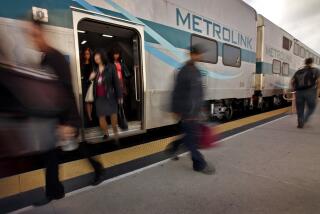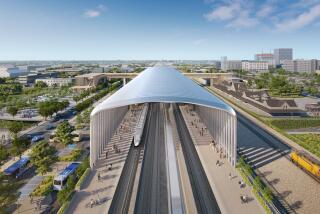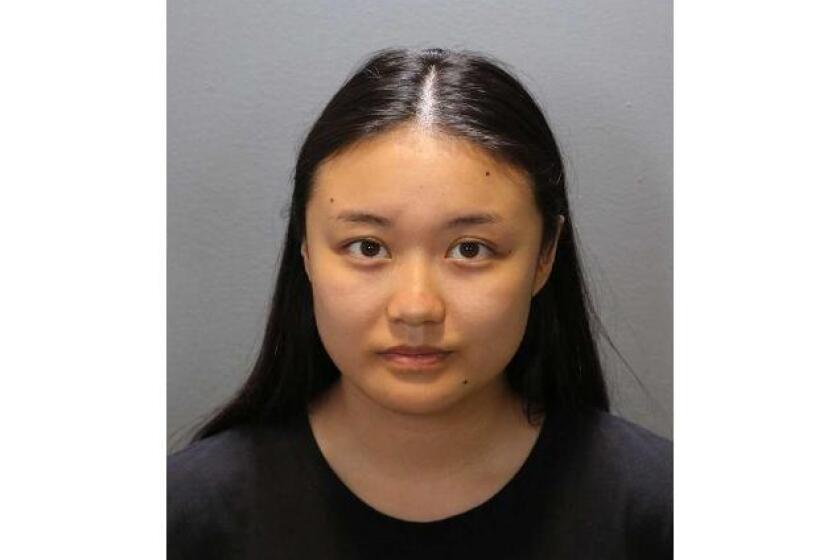Tutor Perini/Zachry/Parsons leads on bullet train contract
The top candidate to build the first 29 miles of California’s bullet train in the Central Valley bid just under $1 billion, below the state estimate of the cost, project officials announced Friday.
The California High-Speed Rail Authority said Tutor Perini/Zachry/Parsons, a joint venture of U.S. firms, submitted a bid of about $985 million and was ranked first out of five competitors. The team offered the “apparent best value” based on price and technical proposals, evaluators said.
Rail officials had estimated the cost of the initial section between Madera and Fresno at $1.2 billion to $1.8 billion. Construction is supposed to begin by July.
“Today is a significant milestone,” said Jeff Morales, the authority’s chief executive. “We received proposals from five world-class teams and are moving forward to deliver a world-class program. It’s time to get to work in the Central Valley and create thousands of jobs.”
Tutor Perini, based in Sylmar, is a key partner in the joint venture. The firm has worked closely in the past with unions. Labor has strongly supported the project and spent $1 million on the political campaign to win voters’ approval of the system in 2008.
The high-speed rail board is expected to award the contract for the first section in the coming weeks.
Of the five bidders, the Dragados/Samsung/Pulice joint venture came in second with a bid of about $1.1 billion. California Backbone Builders involving Ferrovial and Acciona bid almost $1.4 billion and ranked third. Ferrovial, Acciona and Dragados are Spanish firms. Samsung is Korean.
California High-Speed Rail Partners, including Fluor and Skanska based in Sweden, was fourth with a bid of about $1.3 billion and California High Speed Ventures with Kiewit Infrastructure West and Granite Construction, both U.S. companies, was fifth in the rankings, with a bid of almost $1.54 billion.
In January, the five teams submitted their proposals, which were evaluated by a panel of state officials.
Building the first section will require a massive engineering feat that includes cutting a 1.7-mile trench through Fresno, erecting a 1.2-mile viaduct, three major bridges and using giant hydraulic jacks to create a tunnel beneath California 180 in the Fresno area.
The schedule is tight and delays would trigger penalties of $60,000 per day until reaching 10% of the contract, or as much as $150 million, which could wipe out much of the potential profit.
Critics of the project, including former World Bank executive William Grindley, have argued that the first bids will understate the full construction cost of the Fresno segment and are likely to contain provisions that could inflate the final bill.
Whether construction will begin as scheduled is also uncertain. The authority still does not own a single parcel of land for right of way along the Fresno-to-Madera route and a lawsuit is pending that could halt or delay the project if there is an unfavorable ruling.
The initial section is part of a 500-mile line between Los Angeles and San Francisco that will carry some trains at speeds faster than 200 mph. It is now estimated to cost at least $68 billion, the fourth revision over the years.
More to Read
Start your day right
Sign up for Essential California for news, features and recommendations from the L.A. Times and beyond in your inbox six days a week.
You may occasionally receive promotional content from the Los Angeles Times.








